
SCARS Institute’s Encyclopedia of Scams™ Published Continuously for 25 Years

SCARS™ Guide: Nigerian 419 Money Scams
Surprising Facts You Should Know
While Nigerian 419 Scams are not really Romance Scams, they go together, because many times a romantic or dating scam contact ultimately turns into another type of money scam
Nigerian 419 Scams are some of the most common scams online, and millions of gullible people have become victims of these scams. Even today, though awareness levels have increased people continue to fall victims to different versions of the Nigerian 419 email scam. Advance fee scams, also commonly known as “Nigerian” scams, have been around in various forms for decades. In fact, they predate the Internet and email. Nigerian scammers still use surface mail and faxes as well as email and social media.
1) Section 419
The Nigerian 419 scam is based on the section 419 (four one nine) of the Nigerian Penal code which deals with fraud. Though the variations of the 419 scam may originate from any part of the world, it is believed that most of the scammers who send the emails promising millions of dollars in easy money are based in different parts of Nigeria. Due to high unemployment rates, many young people from Nigeria find this an easy way to make quick money.
It should be noted however that this type of activity is not unique to Nigeria or Nigerians. Nations with a high incidence of this fraud include; India, Malaysia, China, Indonesia, Vietnam, the United Kingdom, South Africa, Nigeria, Benin, Togo, Ghana, Ivory Coast, Russia, Kazakhstan, Pakistan, the Netherlands, and Spain.
According to a 2013 Nigerian study (which is ridiculous), the top 25 sources for scam emails by country:
- Latvia
- Egypt
- United States
- Mexico
- Ukraine
- Hungary
- Malaysia
- Colombia
- Romania
- Philippines
- Greece
- Brazil
- China
- Indonesia
- Russia
- Singapore
- Nigeria
- Canada
- Portugal
- Switzerland
- United Kingdom
- India
- Netherlands
- France
- Austria
However, for all that Nigeria protests, they are the poster child for money scams. After 2014, some suspect that China took over as the leader.
2) Origins
The letter promising the unsuspecting internet user millions of dollars is usually sent by email today to massive spam email address lists circulated in the scammer community. However, variants of this scam have been in existence even before email was widely used. Other modes of communication that are used are letters, flyers, SMS/Text messages, instant messaging and website comments.
3) Luring Victims
The scammer makes use of the basic weakness of human beings, the lure of easy money, becoming rich overnight without much effort, and our built-in stranger trust ». When people are made an offer which sounds too good to be true, most people do not bother to verify if the information is correct, most of them will blindly believe in the offer, ignoring the telltale signs that the offer is a scam.
4) Victims profile
The victim is usually a person who uses the internet only for basic correspondence or social media and is not aware of the dark side of human nature or the huge number of web scams running. These people only know other people of similar backgrounds in the course of their daily routine activities, and the chances of being scammed offline are relatively low. They will take the statements of the scammer at face value.
5) Scammer profile
Most of the Nigerian 419 scammers are experts in understanding human psychology (even if they lack formal educations – they are perfect salesmen), the lure of easy money, and how few people are able to resist the temptation. Many are mostly unemployed with limited opportunities available to utilize their time productively. Though the typical scammers are based in Nigeria (and are Nigerians living in the UK), variants of this scam are found in all countries.
6) Use of emails
Most of these individuals send the Nigerian 419 scam letters by email as it is the easiest way to reach huge audiences, with an email costing nothing. Typically emails are sent to thousands or millions of email addresses depending on the email list available to the Nigerian 419 scammer. Comparatively, postal mail and sms are expensive, so only a few scammers use these modes of communication.
7) Collecting Emails
Since the Nigerian 419 scam emails are sent to thousands or millions of email addresses, the scammers have perfected the art of finding new emails for sending these scam emails. Though, we now know that there are criminal syndicates that disburse emails obtained through hacking, such as the one at Adobe a couple of years back, have flooded their uses with spam and scam emails. Often the free email ids will expire or become invalid after a period of time, so emails sent to these email address will bounce. So the Nigerian 419 scammers are constantly harvesting new email addresses from various sources, as soon as the email id has been published online.
8) Free Emails
Most of the Nigerian and other scam emails are sent using free email accounts from Yahoo, Gmail, Outlook, and other online inboxes which are free with little or no verification of the identity of the person opening the account. Since these free email services have millions of accounts, it is difficult to distinguish between genuine account holders and spammers. The email account is used for sending thousands of emails at a time, and is then is typically no longer used.
9) Spam Filters
Since free email addresses are used for sending the scam emails, it is difficult for spam filtering services to block the domain name, as it would cause hardship to all other free account holders. This is a clear cut case of abuse of email, but the most drastic action that can be taken against the email sender is shutting down the account. In most cases there is no domain name specified in the scam email which could be blocked by the spam filters.
10) Effectiveness
Though most experienced internet users are likely to discard the Nigerian 419 scam email immediately after scanning the email, there are many gullible victims who take the email at face value and think that the scam offer is true. The result is hundreds of millions of U.S. dollars scammed from victims EVERY YEAR!
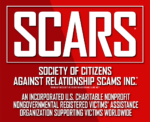
SCARS™ Team
A SCARS Division
Miami Florida U.S.A.
TAGS: Advance Fee Fraud, Email Frauds, Email Scams, Money Scams, Nigeria Scams, Nigerian Money Scams, nigerian scams, Online Scams
END
– – –
Tell us about your experiences with Romance Scammers in our Scams Discussion Forum on Facebook »
– – –
FAQ: How Do You Properly Report Scammers?
It is essential that law enforcement knows about scams & scammers, even though there is nothing (in most cases) that they can do.
Always report scams involving money lost or where you received money to:
- Local Police – ask them to take an “informational” police report – say you need it for your insurance
- Your National Police or FBI (www.IC3.gov)
- The SCARS|CDN™ Cybercriminal Data Network – Worldwide Reporting Network HERE or on www.Anyscam.com
This helps your government understand the problem, and allows law enforcement to add scammers on watch lists worldwide.
– – –
Visit our NEW Main SCARS Facebook page for much more information about scams and online crime: www.facebook.com/SCARS.News.And.Information
To learn more about SCARS visit www.AgainstScams.org
Please be sure to report all scammers HERE or on www.Anyscam.com
All original content is Copyright © 1991 – 2020 SCARS All Rights Reserved Worldwide & Webwide – RSN/Romance Scams Now & SCARS/Society of Citizens Against Relationship Scams are all trademarks of Society of Citizens Against Relationship Scams Incorporated (formerly the Society of Citizens Against Romance Scams)
Legal Notices:
All original content is Copyright © 1991 – 2020 SCARS All Rights Reserved Worldwide & Webwide. Third-party copyrights acknowledge.
SCARS, RSN, Romance Scams Now, SCARS|GLOBAL, SCARS, Society of Citizens Against Relationship Scams, Society of Citizens Against Romance Scams, SCARS|ANYSCAM, Project Anyscam, Anyscam, SCARS|GOFCH, GOFCH, SCARS|CHINA, SCARS|CDN, SCARS Cybercriminal Data Network, Cobalt Alert, Scam Victims Support Group, are all trademarks of Society of Citizens Against Relationship Scams Incorporated.
Contact the law firm for the Society of Citizens Against Relationship Scams Incorporated by email at legal@AgainstScams.org
-/ 30 /-
What do you think about this?
Please share your thoughts in a comment below!
Table of Contents
- Surprising Facts You Should Know
- 1) Section 419
- 2) Origins
- 3) Luring Victims
- 4) Victims profile
- 5) Scammer profile
- 6) Use of emails
- 7) Collecting Emails
- 8) Free Emails
- 9) Spam Filters
- 10) Effectiveness
- Tell us about your experiences with Romance Scammers in our Scams Discussion Forum on Facebook »
- Please be sure to report all scammers HERE or on www.Anyscam.com
LEAVE A COMMENT?
Recent Comments
On Other Articles
- Arwyn Lautenschlager on Love Bombing And How Romance Scam Victims Are Forced To Feel: “I was love bombed to the point that I would do just about anything for the scammer(s). I was told…” Feb 11, 14:24
- on Dani Daniels (Kira Lee Orsag): Another Scammer’s Favorite: “You provide a valuable service! I wish more people knew about it!” Feb 10, 15:05
- on Danielle Delaunay/Danielle Genevieve – Stolen Identity/Stolen Photos – Impersonation Victim UPDATED 2024: “We highly recommend that you simply turn away form the scam and scammers, and focus on the development of a…” Feb 4, 19:47
- on The Art Of Deception: The Fundamental Principals Of Successful Deceptions – 2024: “I experienced many of the deceptive tactics that romance scammers use. I was told various stories of hardship and why…” Feb 4, 15:27
- on Danielle Delaunay/Danielle Genevieve – Stolen Identity/Stolen Photos – Impersonation Victim UPDATED 2024: “Yes, I’m in that exact situation also. “Danielle” has seriously scammed me for 3 years now. “She” (he) doesn’t know…” Feb 4, 14:58
- on An Essay on Justice and Money Recovery – 2026: “you are so right I accidentally clicked on online justice I signed an agreement for 12k upfront but cd only…” Feb 3, 08:16
- on The SCARS Institute Top 50 Celebrity Impersonation Scams – 2025: “Quora has had visits from scammers pretending to be Keanu Reeves and Paul McCartney in 2025 and 2026.” Jan 27, 17:45
- on Scam Victims Should Limit Their Exposure To Scam News & Scammer Photos: “I used to look at scammers photos all the time; however, I don’t feel the need to do it anymore.…” Jan 26, 23:19
- on After A Scam, No One Can Tell You How You Will React: “This article was very informative, my scams happened 5 years ago; however, l do remember several of those emotions and/or…” Jan 23, 17:17
- on Situational Awareness and How Trauma Makes Scam Victims Less Safe – 2024: “I need to be more observant and I am practicing situational awareness. I’m saving this article to remind me of…” Jan 21, 22:55
ARTICLE META
Important Information for New Scam Victims
- Please visit www.ScamVictimsSupport.org – a SCARS Website for New Scam Victims & Sextortion Victims
- Enroll in FREE SCARS Scam Survivor’s School now at www.SCARSeducation.org
- Please visit www.ScamPsychology.org – to more fully understand the psychological concepts involved in scams and scam victim recovery
If you are looking for local trauma counselors please visit counseling.AgainstScams.org or join SCARS for our counseling/therapy benefit: membership.AgainstScams.org
If you need to speak with someone now, you can dial 988 or find phone numbers for crisis hotlines all around the world here: www.opencounseling.com/suicide-hotlines
A Note About Labeling!
We often use the term ‘scam victim’ in our articles, but this is a convenience to help those searching for information in search engines like Google. It is just a convenience and has no deeper meaning. If you have come through such an experience, YOU are a Survivor! It was not your fault. You are not alone! Axios!
A Question of Trust
At the SCARS Institute, we invite you to do your own research on the topics we speak about and publish, Our team investigates the subject being discussed, especially when it comes to understanding the scam victims-survivors experience. You can do Google searches but in many cases, you will have to wade through scientific papers and studies. However, remember that biases and perspectives matter and influence the outcome. Regardless, we encourage you to explore these topics as thoroughly as you can for your own awareness.
Statement About Victim Blaming
SCARS Institute articles examine different aspects of the scam victim experience, as well as those who may have been secondary victims. This work focuses on understanding victimization through the science of victimology, including common psychological and behavioral responses. The purpose is to help victims and survivors understand why these crimes occurred, reduce shame and self-blame, strengthen recovery programs and victim opportunities, and lower the risk of future victimization.
At times, these discussions may sound uncomfortable, overwhelming, or may be mistaken for blame. They are not. Scam victims are never blamed. Our goal is to explain the mechanisms of deception and the human responses that scammers exploit, and the processes that occur after the scam ends, so victims can better understand what happened to them and why it felt convincing at the time, and what the path looks like going forward.
Articles that address the psychology, neurology, physiology, and other characteristics of scams and the victim experience recognize that all people share cognitive and emotional traits that can be manipulated under the right conditions. These characteristics are not flaws. They are normal human functions that criminals deliberately exploit. Victims typically have little awareness of these mechanisms while a scam is unfolding and a very limited ability to control them. Awareness often comes only after the harm has occurred.
By explaining these processes, these articles help victims make sense of their experiences, understand common post-scam reactions, and identify ways to protect themselves moving forward. This knowledge supports recovery by replacing confusion and self-blame with clarity, context, and self-compassion.
Additional educational material on these topics is available at ScamPsychology.org – ScamsNOW.com and other SCARS Institute websites.
Psychology Disclaimer:
All articles about psychology and the human brain on this website are for information & education only
The information provided in this article is intended for educational and self-help purposes only and should not be construed as a substitute for professional therapy or counseling.
While any self-help techniques outlined herein may be beneficial for scam victims seeking to recover from their experience and move towards recovery, it is important to consult with a qualified mental health professional before initiating any course of action. Each individual’s experience and needs are unique, and what works for one person may not be suitable for another.
Additionally, any approach may not be appropriate for individuals with certain pre-existing mental health conditions or trauma histories. It is advisable to seek guidance from a licensed therapist or counselor who can provide personalized support, guidance, and treatment tailored to your specific needs.
If you are experiencing significant distress or emotional difficulties related to a scam or other traumatic event, please consult your doctor or mental health provider for appropriate care and support.
Also read our SCARS Institute Statement about Professional Care for Scam Victims – click here to go to our ScamsNOW.com website.





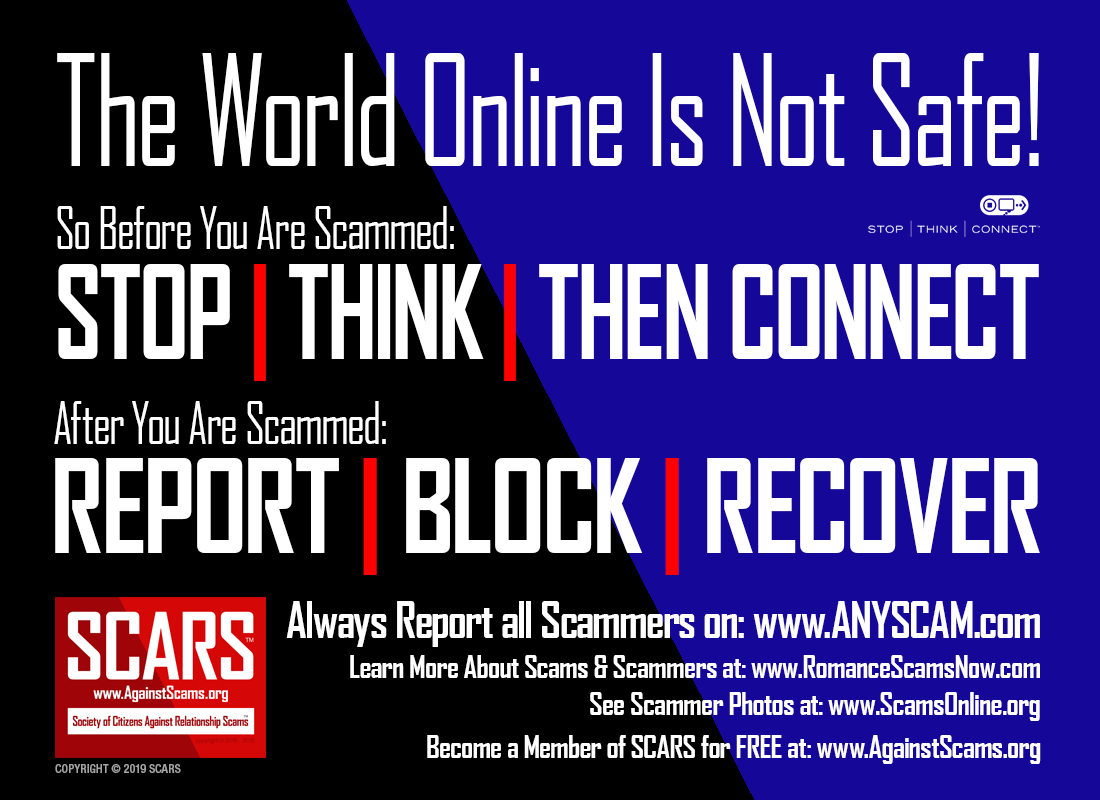

![To Be A Scammer? An Overview Of Scammers Fraudsters & Online Con Artists - 2024 [UPDATED] what is a scammer what-is-a-scammer](https://romancescamsnow.com/wp-content/uploads/2021/10/what-is-a-scammer.png)
![New Research Study on Stolen Valor - Military Scams - STUDY NOW COMPLETED [UPDATED] Military Impersonation Research Study New Research Study on Stolen Valor - Military Scams](https://romancescamsnow.com/wp-content/uploads/2022/03/Military-Impersonation-Research-Study.png)
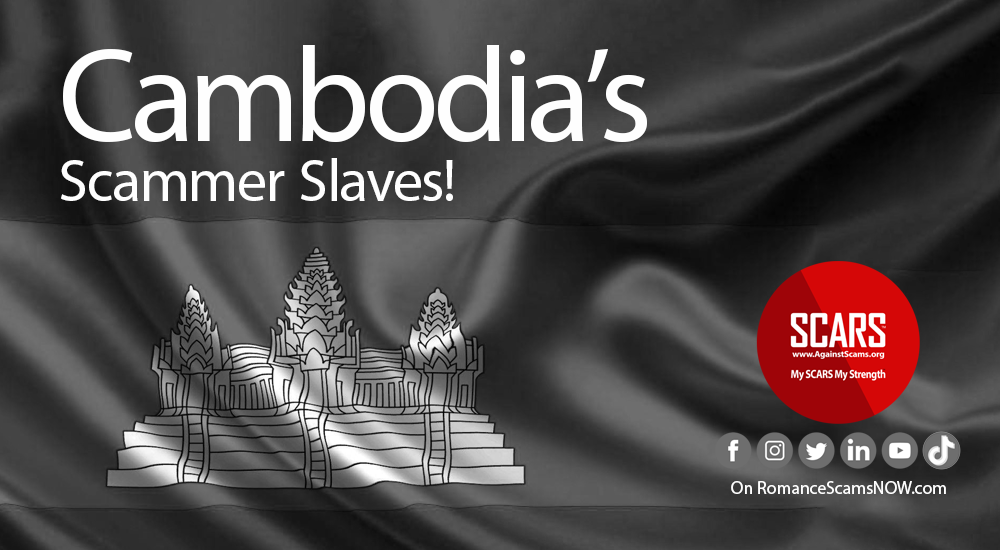
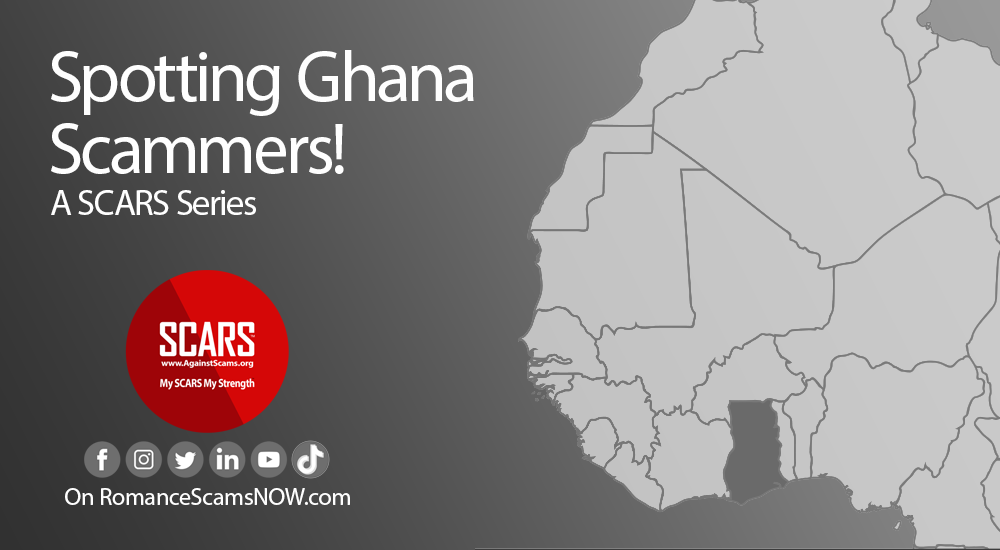
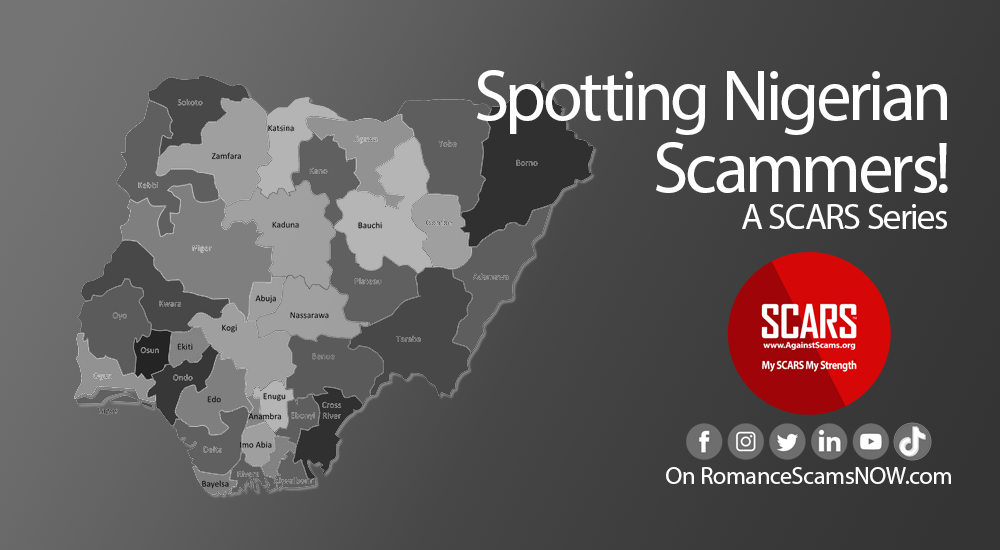




Thank you for your comment. You may receive an email to follow up. We never share your data with marketers.